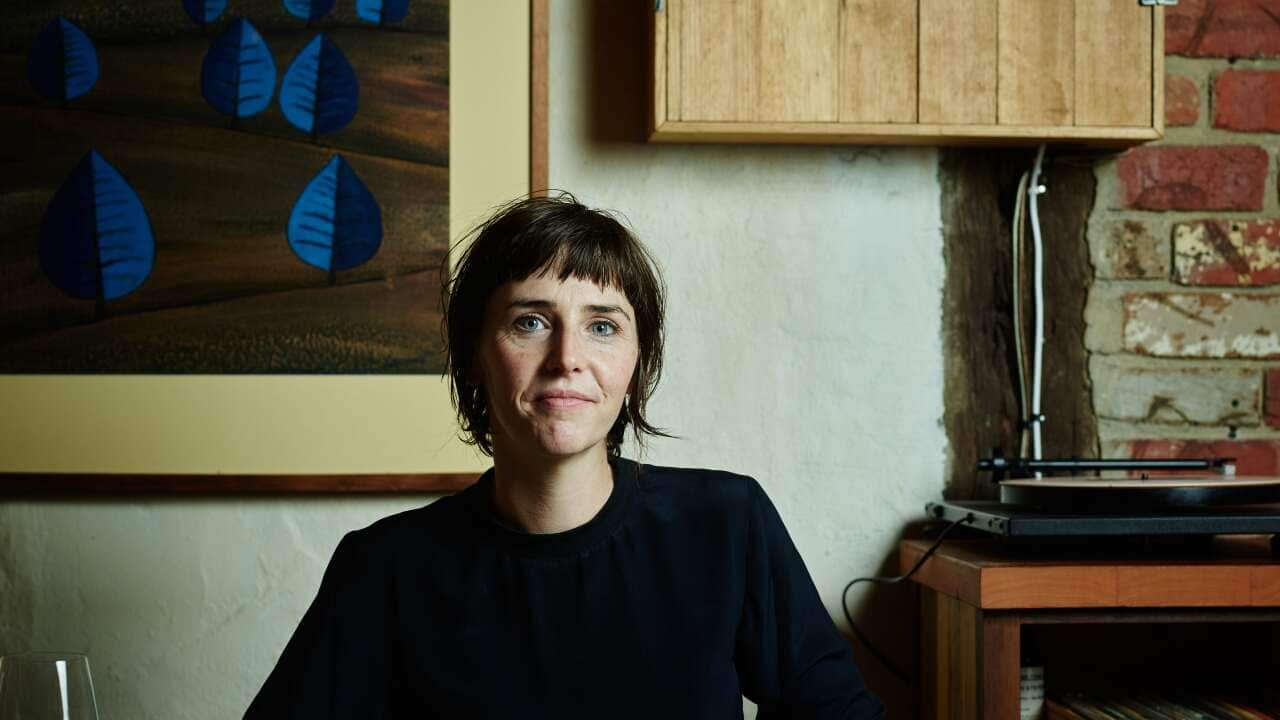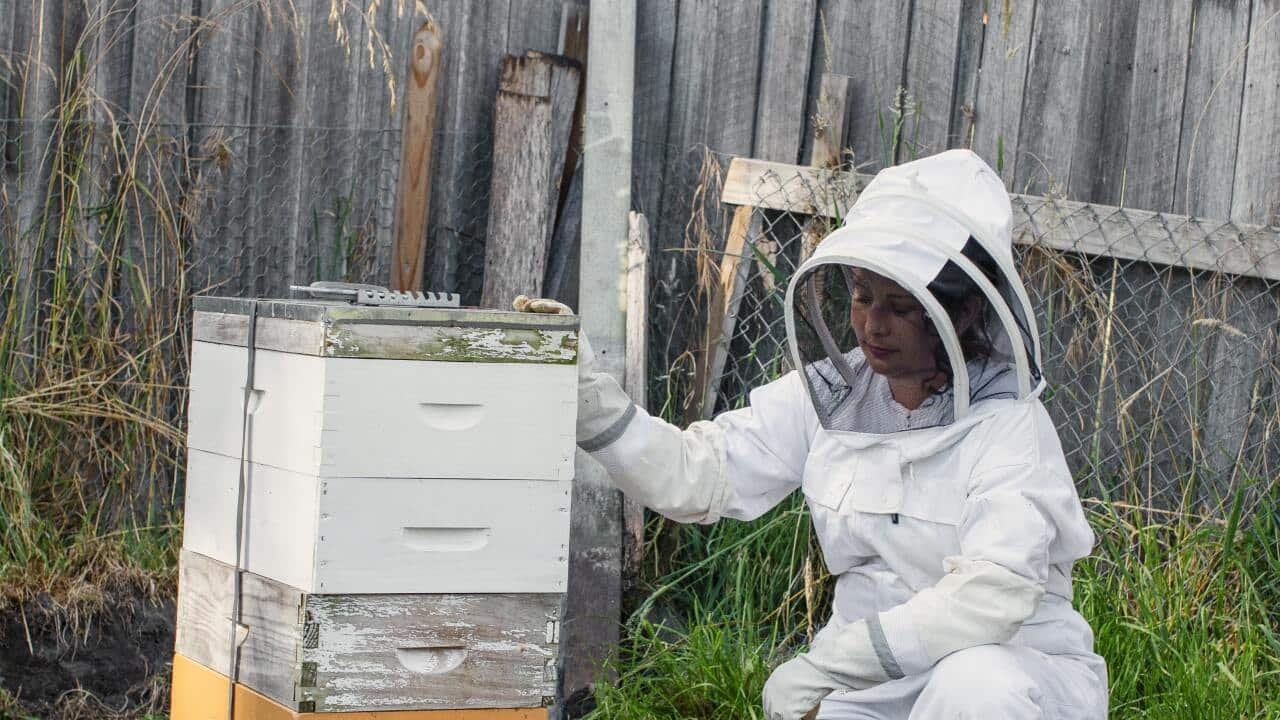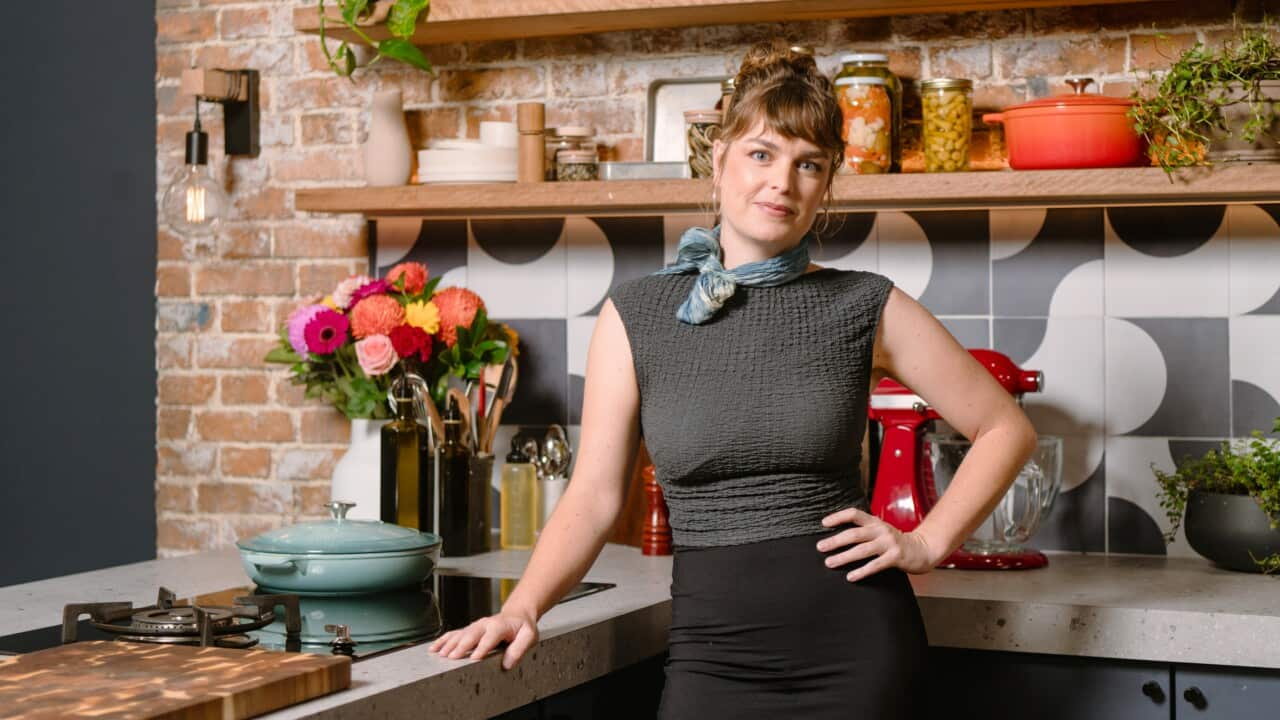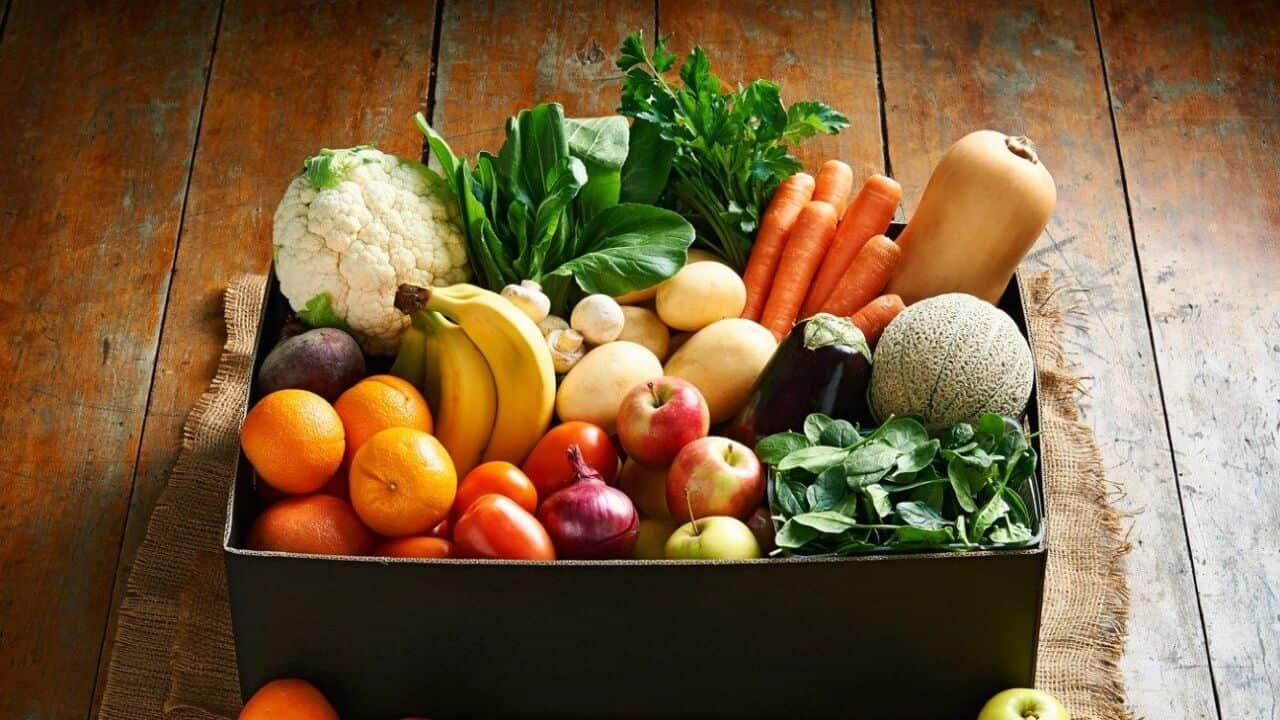Stream free On Demand

Simple & Scrumptious
episode • The Cook Up with Adam Liaw • cooking • 30m
G
episode • The Cook Up with Adam Liaw • cooking • 30m
G
For Zoe Birch, co-owner of Greasy Zoe’s, the lauded eight-seater just outside Melbourne, bread is the most important course of a meal.
“I just really like making bread and I love seeing people's faces when it comes out,” says the chef, who appears as a guest on Season 8 of The Cook Up with Adam Liaw. “I've been making bread forever. We would make bread when I was a kid, almost every day. It was like a ritual.”
At Greasy Zoe’s, Birch bakes a 24-hour fermented sourdough using flour from Tuerong Farm, on the Mornington Peninsula. “Jason grows the grains, he mills them himself, it’s a tiny business. He's doing a really good thing. He's using all these ancient grains and, introducing all these really interesting things back into the industry,” she explains.
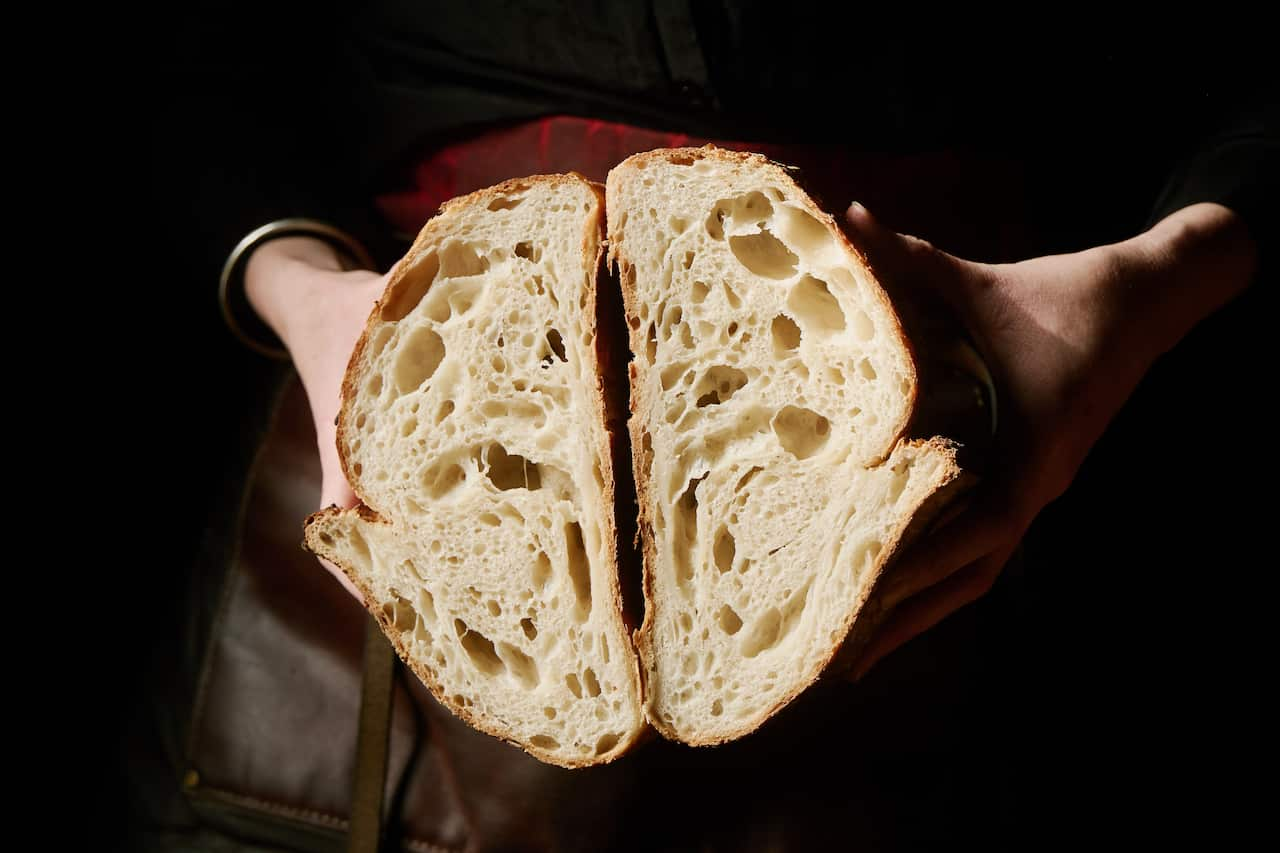
Greasy Zoe's sourdough Credit: KRISTOFFER PAULSEN
One of Australia’s first micro restaurants
Championing small-scale farmers like Jason is central to the philosophy behind Greasy Zoe’s, which Birch opened with her partner, Lachlan Gardner, in 2017, after years working as a chef at Victoria cafes and pubs like Middle Brighton Baths and The Courthouse.
The pair transformed a shuttered fruit and vegetable shop in Hurstbridge (a space not much bigger than a lounge room) into what is now one of the most distinctive restaurants in the country.
They initially started with 15 seats and opened five days a week, but soon pared things back to an intimate eight-seat dining room and three days of service to better balance the demands of the restaurant with raising their two young children. Birch runs the kitchen while Gardner takes care of the floor.
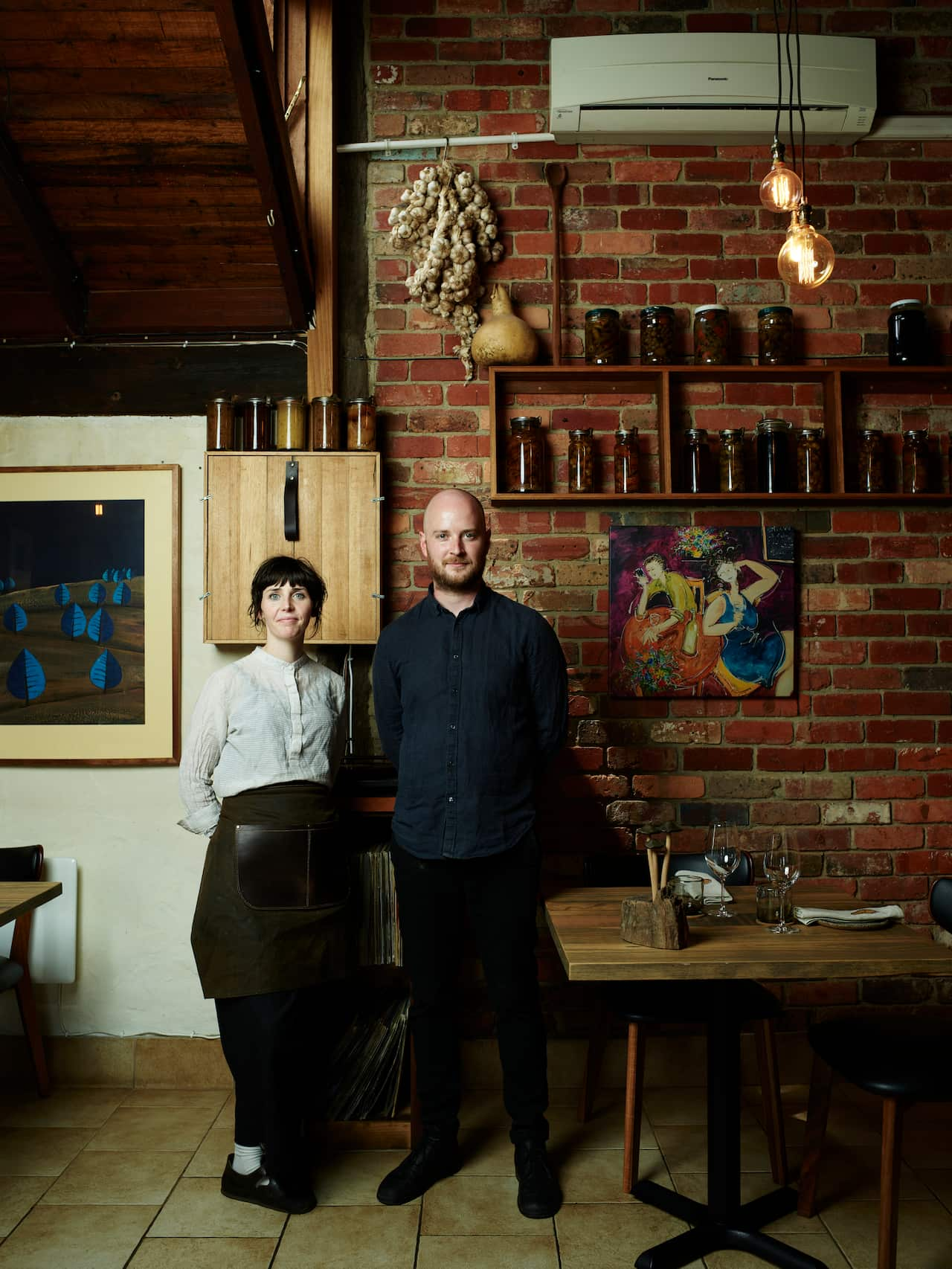
Zoe Birch and Lachlan Gardner Credit: Kristoffer Paulsen
Since then, micro restaurants have flourished. There’s CHAE, the six-seat Korean restaurant, which has moved from a Brunswick apartment to Cockatoo, just outside Melbourne, and Ranita Ramen, a nine-seat Hobart noodle bar, which has become a favourite since opening last year. Just like Greasy Zoe’s, both restaurant are run by couples.
In West Melbourne, Chameshi Zenka serves kamameshi to just four diners, while Sydney’s Ka and Footscray’s Matsu offer 10- and 12-seat chef’s table experiences.
Meanwhile, renowned chef Analiese Gregory is opening a new tiny eatery out of her home in Hobart, as further evidence of this being more than a trend – but rather a sustainable way forward for the hospitality industry.
The movement doesn’t surprise Birch. “It was a lifestyle thing for us, and there’s also the cost of opening a restaurant. I don't know how anyone can afford it unless you're part of a group or you have investors. It's pretty impossible,” she says.
“And people like that story. They come into our restaurant and can have a conversation with Lachlan and I throughout the dinner. It's all part of the experience and people like that.”
An ethos built on no compromise
Over the years, Greasy Zoe’s has earned a reputation as one of Melbourne’s most interesting dining experiences, praised for its focus on hyper-local produce and its no-compromise approach to sustainability. The couple has resisted the pressure to scale up.
We can get local produce. We can use anything we want. There's no compromise, we can go for it.
That ethos comes from Birch’s own upbringing in the Goulburn Valley, where her family grew most of their vegetables, preserved them, and baked their own bread. She spent much of her childhood cooking alongside her mum and entering baking competitions at regional fairs, from the age of eight right through her teens. “It’s pretty ridiculous looking back, but I just loved it,” she says, laughing.
At Greasy Zoe’s, Birch keeps waste to a minimum and sources mainly from farmers within the Nillumbik Shire and nearby Yarra Valley.
“When you look at the word ‘local’, that can mean anywhere up to 650km away. So, it's not very local. But when you say hyperlocal, it distinguishes the fact that we're trying to get the produce from as close to the restaurant as possible,” she explains. “We’ve created all these relationships with people in the area. We drive to their farm, and we pick the produce, and we have a conversation with them and see what's looking good on the day.”
The restaurant’s green waste then circles back to one of these farms to be composted.
Ingredients that tell a story
Birch’s ingredient sourcing is meticulous. She buys lettuces and kale from a small farm in St Helena, and almost always has a mushroom dish on the menu with mushrooms grown outdoors by a microbiologist in Badger Creek.
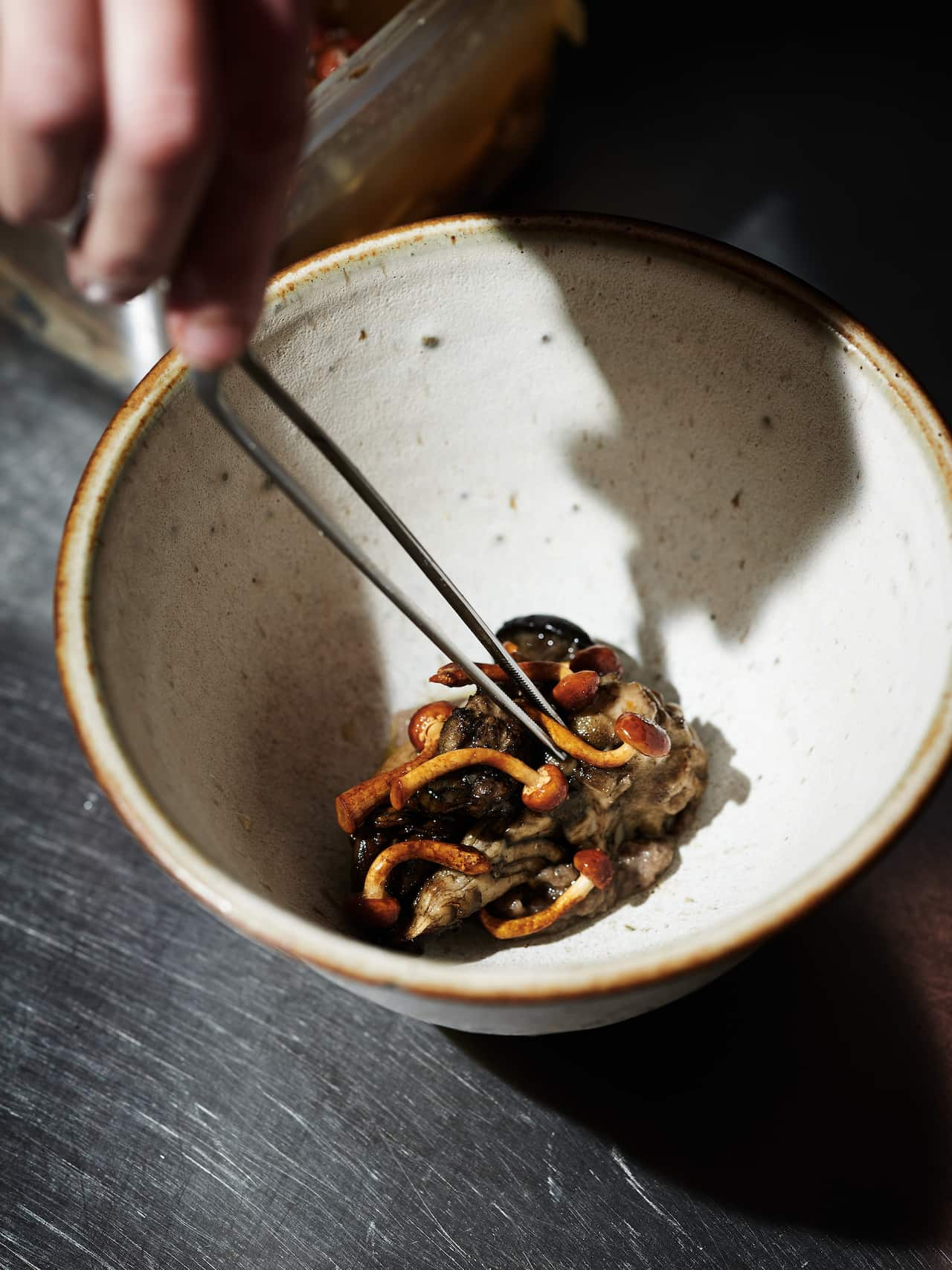
Mushrooms are a staple at Greasy Zoe's. Credit: Kristoffer Paulsen
While the menu leans strongly towards vegetables, Birch makes space for meat and poultry when it means supporting producers she believes in, like Heidy’s Pastured Poultry.
“I have chicken on the menu a lot just so that I can keep buying chicken from her,” she admits. “There are a lot of dishes like that, that I’ll always have on the menu just so I can keep on supporting the farmers.”
Why less can mean more
For Birch, Greasy Zoe’s is more than a restaurant: it’s an example of how dining can support communities, champion farmers, and tread lightly on the environment, without compromise.
In an era when scale and spectacle often dominate the food world, Greasy Zoe’s proves that small can be mighty.

